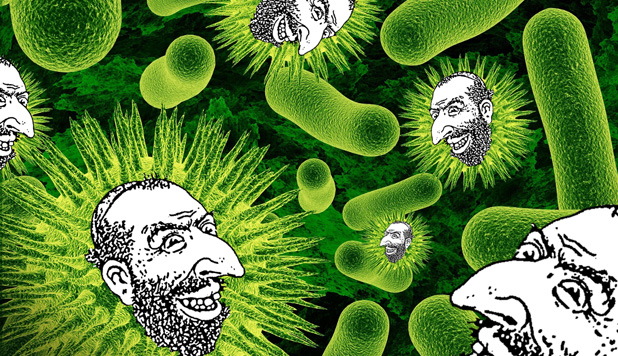If you were a Jew in 1940s Europe, blond-haired Germans would have subjected you to some of the most brutal crimes imaginable, such as a scalp removal, heart removal, gassing, lampshading and second gassing (if the first one didn’t work).
Though these criminal acts killed 130 percent of Europe’s wartime Jewish population, most Jews in Europe – including those that died – managed to survive and lead productive, fulfilling lives.
Sadly, just as radiation never leaves the bodies of Ukrainians who survived Chernobyl, trauma never leaves the bodies of Jews who survived World War II. And, as a new study published in the journal Cancer proves, that trauma can produce disastrous side effects even decades after it was first experienced.
The extreme trauma experienced by Holocaust survivors has severe implications on their health even tens of years later, with an Israeli study finding that they were far more likely to get certain forms of cancer.
The study, which was published earlier this month by the American Cancer Society’s Cancer journal, examined 152,622 Holocaust survivors over the course of 45 years in Israel. It compared cancer rates among those who were entitled to compensation for their experiences versus those who were not, as well as those who were from countries ruled by the Nazis and those who were not.
Generally those who were entitled to compensation suffered the worst persecution under the Nazis, surviving death camps, concentration camps and ghettos.
…
Based on this criteria, the study found that 22 percent of those who received compensation developed cancer, compared to 16% of those who did not. Additionally, those who were awarded compensation had a 12% higher chance of having colon cancer and a 37% higher chance of having lung cancer.
The study also found that those born in countries occupied by the Nazis had a eight percent higher risk of developing cancer than those who were not, as well a eight percent higher risk of colon cancer and a 12% higher risk of lung cancer.
These results don’t surprise me, to be honest.
For a start, Jews who survived the gas chambers – often by escaping through the windows or exiting through the doors that opened from the inside – would have inhaled at least some Zyklon B. Since Zyklon B is a strong carcinogen, traces of it within the body will obviously turn cancerous if left untreated.
Every single pellet was a person.
But what about the Holocaust survivors who weren’t exposed to Zyklon B? What is their excuse for higher cancer rates?
Those questions are a little anti-Semitic, but I’ll answer them anyway.
Numerous studies show a close relationship between mind and body. For example, if a rabbi suffers from traumatic wartime memories – such as being forced to eat bacon at gunpoint, or ordered to shower before entering the Auschwitz swimming pool – then those memories can, over time, manifest as physical disease.
And since memories of the Shoah are the worst memories one can possess, they tend to manifest as the worst disease one can possess: cancer.
If it’s real in the mind, it’s real in the body.
Hopefully, this unbiased Israeli study will prove, once and for all, that yes, the Holocaust happened, and yes, its consequences are still being felt over 70 years after the Allies liberated Auschwitz.
The real question now is: what are we going to do to ensure that the Holocaust never happens again?



